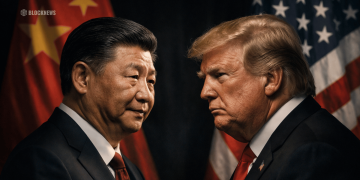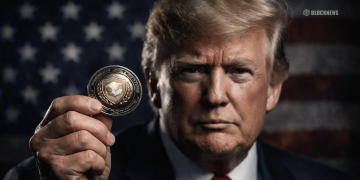- The SEC has approved crypto futures ETFs but continues to reject spot crypto ETFs, despite both deriving value from the spot market. BlackRock argues this is a double standard.
- BlackRock filed for a spot Ethereum ETF, questioning the SEC’s reasoning that futures ETFs have superior protections under the 1940 Act compared to spot ETFs.
- BlackRock contends the SEC’s reasoning is flawed since futures and spot ETFs provide the same exposure to crypto prices. Many expect a spot Bitcoin ETF approval by 2023 given futures ETF approvals.
The SEC has approved several crypto futures ETFs but continues to reject spot crypto ETFs. BlackRock recently argued this is a double standard, as futures derive their value from the spot market.
BlackRock Files for Spot Ethereum ETF
BlackRock filed for approval of a spot Ethereum ETF called the iShares Ethereum Trust. In its filing, it questioned the SEC’s reasoning for approving futures but not spot crypto ETFs. It argued the SEC’s preference for the 1940 Act governing futures ETFs is irrelevant, as it does not address the underlying assets.
SEC’s Basis for Approval
The SEC claims futures ETFs have superior protections under the 1940 Act compared to spot ETFs under the 1933 Act. It also favors the regulated futures market of CME over spot crypto markets. However, BlackRock contends these regulations apply to the ETF wrapper, not the underlying asset.
Flawed Reasoning
BlackRock asserts that since the SEC approved futures ETFs based on ETH prices, it should also approve ETFs directly holding ETH. The futures market provides no additional protections. Approving futures but not spot ETH ETFs is therefore contradictory.
Market Expectations
Many expect a spot Bitcoin ETF approval by early 2023. The futures market provides no meaningful additional protections or information on the spot market. With futures ETFs already approved, a spot ETF approval seems likely soon.
Conclusion
BlackRock makes a compelling case against the SEC’s inconsistent treatment of crypto ETFs. By approving futures but not spot crypto ETFs, despite both deriving values from the same spot markets, the SEC applies a regulatory double standard.














